
Prometheus Bound workshop at CalArts. This massive, 23-foot-tall wheel represents the remote mountaintop to which Prometheus is chained.
What happens when an individual stands up to the tyrannical rule of a new leader? What punishments are bestowed? What is accomplished, and what lost, by the act of defiance?
The play Prometheus Bound explores these questions, which resonate as deeply today as they did when Aeschylus (or possibly one of his contemporaries) penned it in the 400s B.C. The play is this year’s annual outdoor theater production at the Getty Villa’s Barbara and Lawrence Fleischman Theater, an outdoor performance space designed after the ancient theaters in Greece and Rome.
This year, the Getty Museum has partnered with the CalArts’ Center for New Performance to breathe vibrant, contemporary life into this ancient text. Featuring a new translation by noted poet and essayist Joel Agee, the production includes original music by composer Ellen Reid and celebrated jazz multi-instrumentalist Vinny Golia, who will also perform live onstage.
But who was Prometheus, and why was he bound?
Prometheus was one of the immortal Titans, which in ancient Greek mythology ruled the world before they were overthrown by the better-known Olympian gods. During the struggle for power between the two, Prometheus attempted to counsel the Titans but was rebuked—they believed they could win through strength alone. Through his gift of foresight, Prometheus knew that the battle could only be won through “superior guile, not might,” and chose to offer his advice to one who would listen, the Olympian leader Zeus. The Olympians won the war, and Zeus obtained ultimate rule. However, Zeus’s power quickly went to his head, and he decided to wipe out the human race in favor of growing “another one more to his liking.”
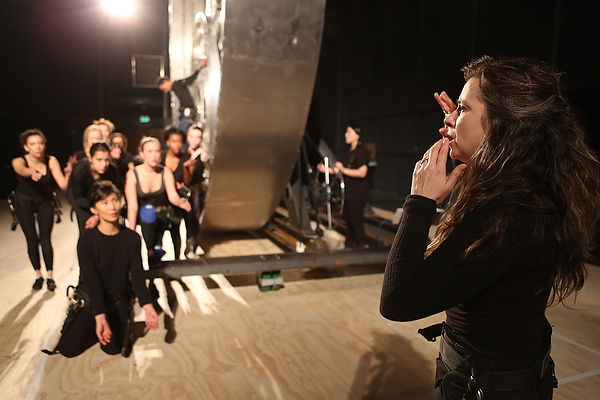
Mirjana Jokovic in a Prometheus Bound workshop at CalArts
This fateful moment is where the play begins. We see Prometheus chained to a desolate mountaintop at the edge of the world for all eternity. His latest transgression? Taking pity upon the suffering of humanity by stealing fire from the gods and sharing it with humans, along with the gifts of knowledge and awareness, letters and numbers, art and culture—all that gives meaning to human existence.
Though Prometheus Bound is probably the oldest Greek play still known to us, its timeless themes have influenced writers from Milton to Mary Shelley, who gave her novel Frankenstein the subtitle “The Modern Prometheus.”
In this production, the remote mountaintop to which Prometheus is chained is represented by a massive, 23-foot-tall steel wheel. Resembling an astronomical clock, the wheel represents man’s relationship to the cosmos and the unending passage of time. Throughout the play, Prometheus rotates around the wheel, interacting with different characters and raging against Zeus for his harsh punishment and disregard of their lost friendship. Accomplishing this remarkable acting feat is Ron Cephas Jones, who was most recently on stage in London as Shakespeare’s Richard III.
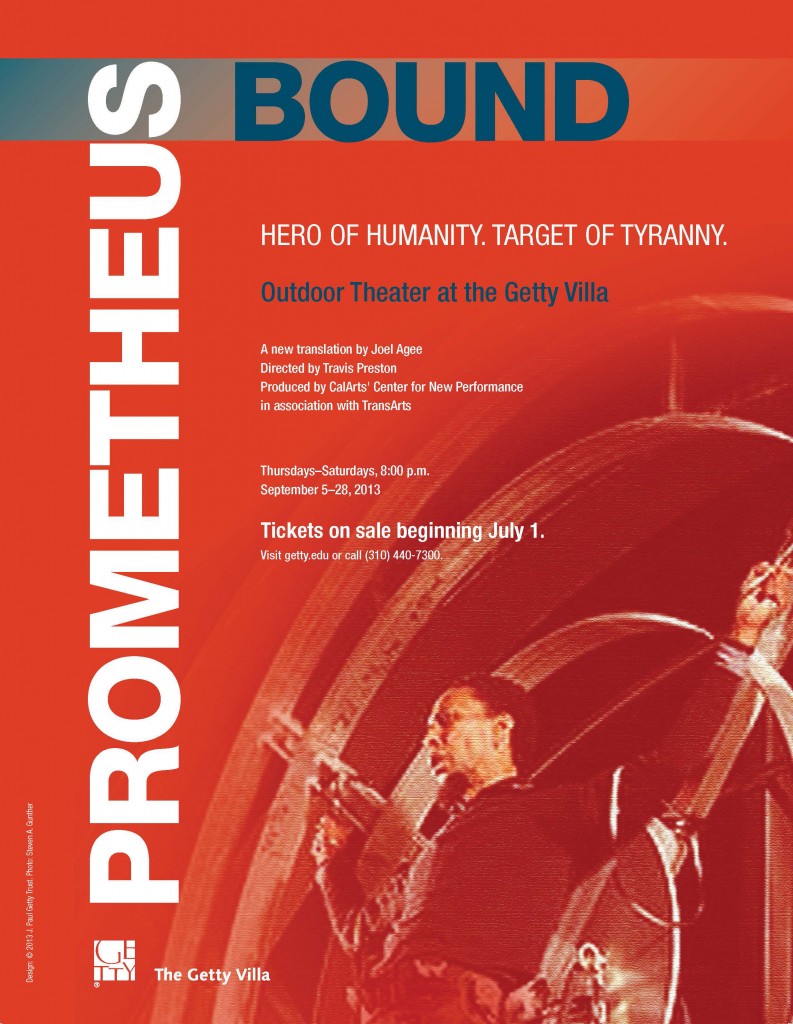
Look for these posters around town this summer. The photo shows Ron Cephas Jones performing the remarkable feat of embodying Prometheus while anchored to the 23-foot-tall rotating wheel.
Tickets for the production went on sale this morning. Throughout the summer we’ll bring you behind-the-scenes glimpses of how the production is progressing, including the installation of the 5-ton wheel the week of July 15, and stories from the cast and creative team.

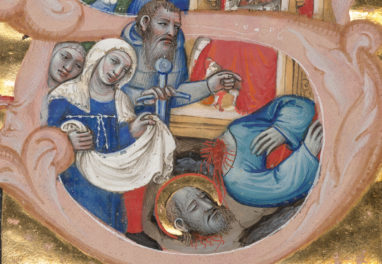
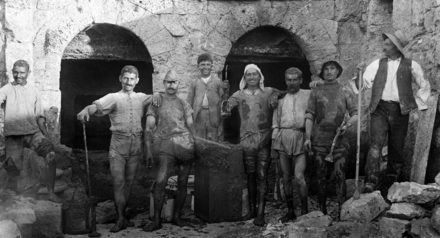
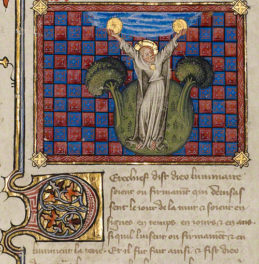
Comments on this post are now closed.